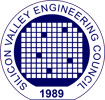
Join us for Memory Optimizations for Machine Learning, an event on Tue, June 11, 2024 at 7pm at SEMI, 567 Yosemite Drive, Milpitas, CA 95035. (Also available via Zoom – see https://CaliforniaConsultants.org/event/axion-machine-learning-storage-at-netflix/)
We’ll have free quality pizza and drinks starting at 6:30pm. Come early and network with our members, other engineers, interested parties, and possible consulting clients. A Zoom option for this hybrid event is at www.CaliforniaConsultants.org
Machine Learning (ML) continues to forge its way into diverse industries and applications. ML’s ability to optimize computational resources – and in particular memory – has become a critical aspect of effective model deployment. This talk will offer an exhaustive look into the specific memory requirements of ML tasks, and the cutting-edge strategies needed to minimize memory consumption efficiently.
Our speaker Tejas Chopra will begin by demystifying the memory footprint of typical ML data structures and algorithms, elucidating the nuances of memory allocation and deallocation during model training phases. He will then focus on memory-saving techniques such as data quantization, model pruning, and efficient mini-batch selection. These techniques offer the advantage of conserving memory resources without significantly degrading model performance. Tejas will offer additional insights into how memory usage can be optimized across various hardware setups, from CPUs and GPUs to custom ML accelerators.
(Please note this presentation has a somewhat modified title and scope from what was originally posted.)

Tejas Chopra is a Senior Engineer at Netflix working on the Machine Learning Platform. Previously, he was a part of the Content Engineering organization working on building Storage Infrastructure for Netflix content. Tejas is also the Co-Founder of GoEB1 – a thought leadership platform for immigrants. He is an IEEE Senior Member, a BCS Fellow, a 2x TEDx speaker, and he has spoken at several conferences on Cloud Computing, Blockchain, and Storage Infrastructure. His experience includes work at Box, Datrium, Samsung, Cadence, and Apple, and he holds a Master’s in Electrical and Computer Engineering from Carnegie Mellon University, Pittsburgh.





